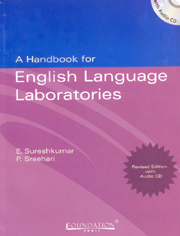1 - Computer Assisted Language Learning (CALL)
from Part I - Computer Assisted Language Learning
Published online by Cambridge University Press: 26 October 2011
Summary
In this unit you will learn about:
what CALL is
how CALL benefits learners and teachers
how CALL helps in developing skills in English
resources for CALL
language learning softwares.
About CALL
CALL, an abbreviation for Computer Assisted Language Learning, is an interactive method of instruction that helps learners achieve their goals of learning, at their own pace and ability. In this method, computer technology is used in teaching/learning procedures at all stages such as presentation, practice and feedback.
Benefits of CALL
CALL:
helps in enriching English language skills
connects a learning place to the outside world
helps in relating academics to the practical needs of the outside world
serves as a ‘surrogate teacher’
aids in collaborative and cooperative learning
is ideal for carrying out repeated drills
provides impartial feedback
creates a realistic environment (for example, listening activities are combined with visuals)
is ideal for integrating skills such as reading, writing, speaking and listening
provides a choice of an appropriate learning strategy
acts as a ready-reckoner for all queries in the field of language learning/teaching
Use of CALL in Classroom Learning/Teaching
With the reduction in the cost of computers, most educational institutions can afford to have computer systems. A computer lab is nowadays seen as an essential requirement in any educational institution because of the increased awareness among the students, teachers and managements.
- Type
- Chapter
- Information
- A Handbook for English Language Laboratories , pp. 3 - 14Publisher: Foundation BooksPrint publication year: 2009
- 2
- Cited by

